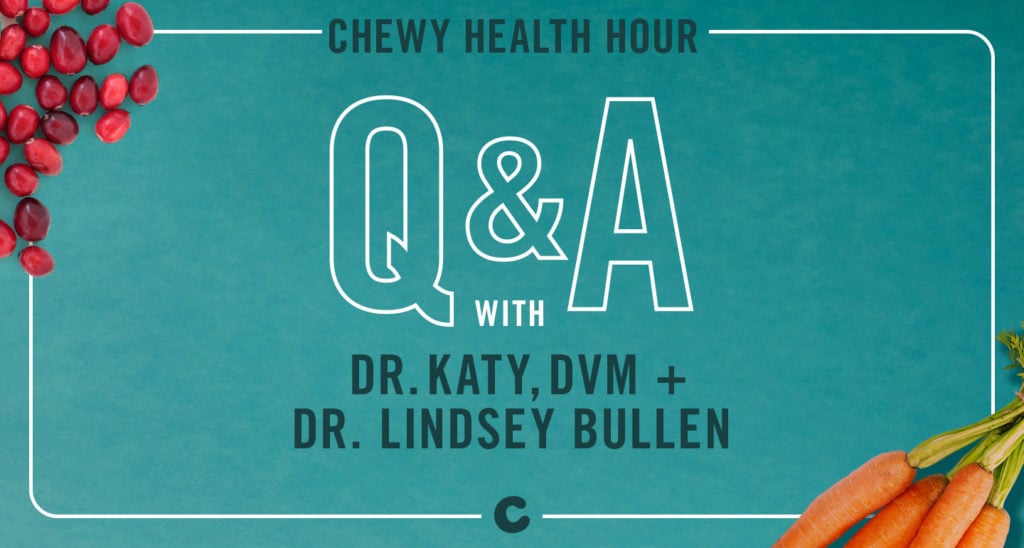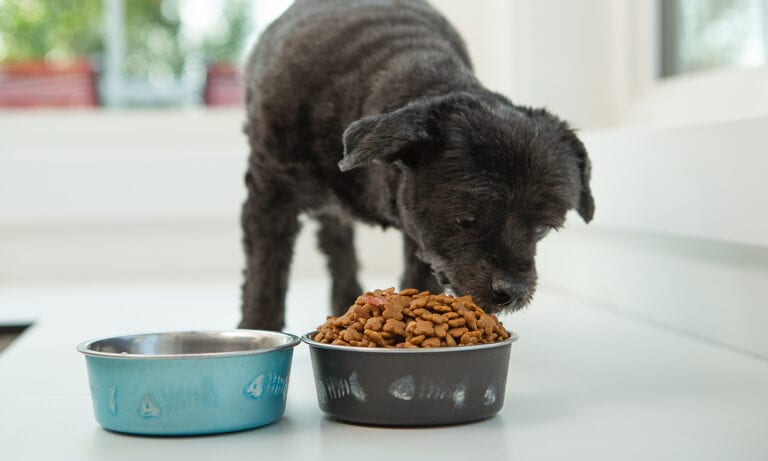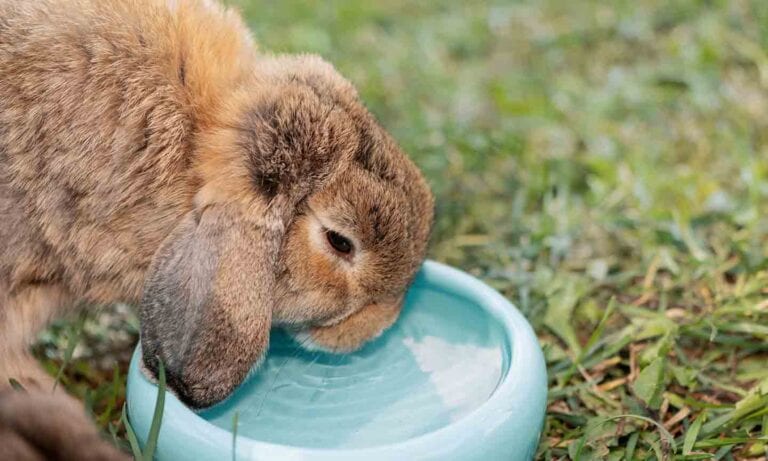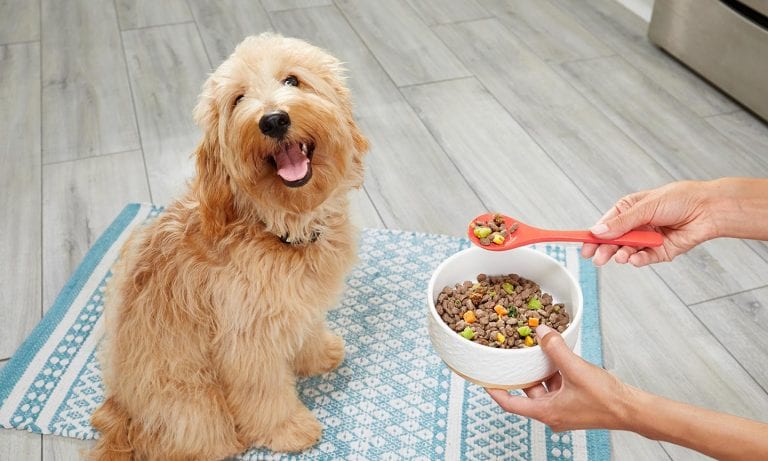Are you feeding your pet the right food—in the right amount? Should you consider another brand of dog food? What the heck does anything mean on our pet’s food label, anyway?
Most pet parents know that high-quality nutrition for pets is essential for their well-being and happiness. But figuring out what’s best for your pet is a process of trial-and-error.
When it comes to your pet’s diet, you should always consult your veterinarian for their guidance. For some extra insight on the topic, check out our vet Q&A below where Chewy’s Senior Vet asks board-certified veterinary nutritionist Dr. Lindsey Bullen our community’s top questions on navigating the world of pet nutrition. From choosing a food to deciding how to feed your pet, our vet experts have the answers.
Need some pet food recommendations? Check out our complete guides to the best high-quality dog food and the best high-quality cat food.
All questions and answers have been edited for length and clarity.
 Q: With all of the pet food options that consumers are faced with, how can they decide which to choose for their pet?
Q: With all of the pet food options that consumers are faced with, how can they decide which to choose for their pet?
A: That is such a good question, but it is so complicated. It is always so important to talk with your veterinarian anytime you’re going to get a new pet or even if you have an old pet. All pet parents should have a long-lasting relationship with their vet. And if your vet doesn’t have all the answers, they can at least point you in the right direction.
All pets should be on a complete and balanced diet that meets the Association of American Feed Control Official's (AAFCO) standards and appropriate for their life stage. For an otherwise healthy animal, you should think about what you personally consider to be an important factor in your pet’s food. My personal philosophy is that my pet’s food should also be from a reputable and transparent company. For example, I look for extra quality control standards and companies who consult with veterinary nutritionists or a PhD for their formulations.
Some pet parents may prefer natural or organic formulas, while that it something I don’t consider as important for my pets. It all boils down to what you feel is personally best for your pet. But keep in mind, even if you pick a high-quality pet food that really speaks to you, your individual pet might need something a bit different, which will require some trial-and-error. Choosing a diet isn’t an exact science, unfortunately.
Q: Say we’ve chosen our food and our pet has been on it for three to four months. How do we know if this food is doing well for out pet
A: Intermittent vomiting, regurgitation, tummy noises, eating slowly and/or very soft or hard stool can indicate that your pet’s food may not be working for them. It is possible that your pet’s specific health needs require a unique diet (for example, a kitten with a sensitive stomach may need a diet that is high in fiber), so it’s important to take that into consideration. Typically, the GI tract and poop (for lack of a better term) is a window into the soul of the pet. If their stool is normal, solid but not too firm, and they are interested in eating—those are all really good indicators that the diet they are on is well-tolerated.
Q: If a pet parent and a veterinarian has decided to make a change to a new food, what are some tips for transitioning?
A: Most bags of pet food have a very rudimentary transition recommendation. One of the biggest messages I want to get out there today is that your pet is unique—just as you are unique, and just as I am unique. And so typically for dogs, I recommend anywhere from seven to 10 days in a transition from the old diet to the new diet. But that doesn’t mean you can’t do it in three.
For cats, though, I do recommend a longer transition period, about two to four weeks. Cats tend to be finicky, so if we try to change something suddenly, they may not like, refuse to eat, and now we have a medical emergency because the cat isn’t eating. So, in general I usually recommend starting long, and if you notice your pet is accepting, and their GI tract is comfortable, then you might be able to speed it up a little bit. But always consult with your veterinarian for their recommendation.
Share:









